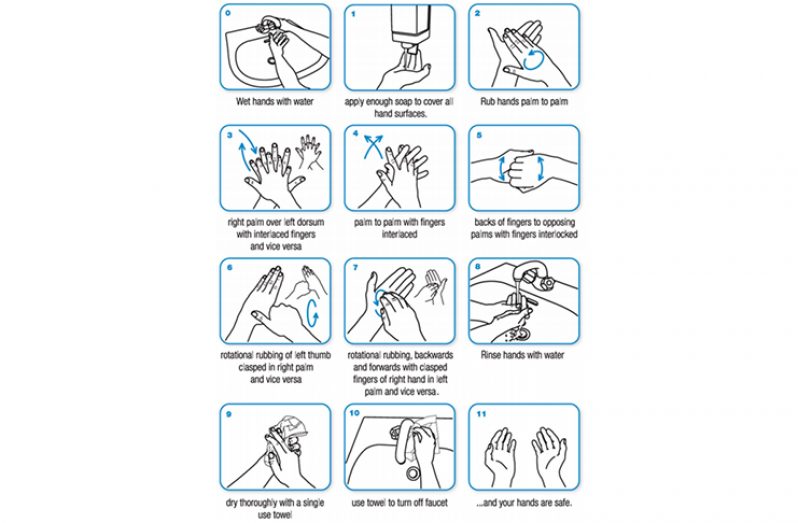Washing your hands is one of the important things you can do to keep from getting sick.
However, as the world celebrates Global Handwashing Day today, recent studies still show that 97 per cent of the time, persons fail to properly clean their hands before meals.
This 2018 study was conducted by the Food Safety and Inspection Service (FSIS) of the U.S. Department of Agriculture (USDA), contracted with RTI International and its subcontractor North Carolina State University (NCSU).
Some of the areas it outlined in which many still fall short include washing hands for the necessary 20 seconds; drying hands with a clean towel and wetting hands with water.
Meanwhile, the Global Handwashing Partnership’s (GHP’s) 2017 Annual Report states that only around 19 per cent of people worldwide wash their hands after contact with excreta.
In addition, access to handwashing facilities ranges from nearly 100 per cent in some countries, to less than 10 per cent in others
According to the Center for Disease and Control and Prevention (CDC), hand- washing can prevent one in three diarrhoea-related illnesses and one in five respiratory infections, such as a cold or the flu.
The CDC recommends utilising bar or liquid soap, whether antibacterial or plain, and the use of an alcohol-based sanitiser with at least 60 per cent alcohol when soap and water are not available.
Disregard this and germs from unwashed hands can enter the body through the eyes, mouth and nose; also, through unclean surfaces such as door knobs and objects such as toys.
Germs from unwashed hands can even enter food and drinks, causing persons to become sick when consumed.
As such, Pan American Health Organisation/World Health Organisation (PAHO/WHO) recommends that in order to clean hands well and protect against infections, persons should take a few measures.
These include wetting your hands with clean, running water (warm or cold); turning off the tap and applying soap; lathering your hands by rubbing them together with the soap. Be sure to lather the backs of your hands, between your fingers, and under your nails; and scrub your hands for at least 20 seconds. Washing your hands properly takes about as long as singing ‘Happy Birthday’ twice; rinse your hands well under clean, running water; dry your hands with a single-use towel or air dry them; and use a towel to turn off faucet.
Coupled with this, the Infection Prevention and Control Manual of the Georgetown Public Hospital Corporation (GPHC) reminds: “Avoid using hot water, as repeated exposure to hot water may increase the risk of dermatitis.”
According to the CDC, one should wash his/her hands before eating; preparing food; treating a cut or wound or caring for someone sick and after using the bathroom; changing diapers; touching an animal; touching garbage and blowing your nose, coughing, or sneezing.
In 2008, October 15 was designated Global Handwashing Day with the aim of increasing awareness and understanding the importance of handwashing with soap as an effective and affordable way to prevent diseases.
It is being celebrated this year under the theme ‘Clean Hands – A recipe for health.’




.png)









